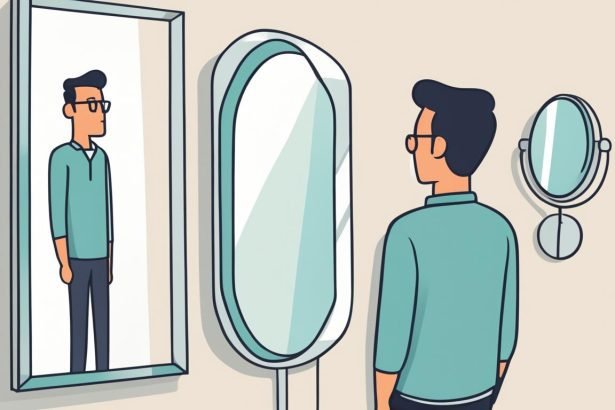Self-reflection is crucial for growth, though it’s not always easy to face the parts of ourselves that could use some work. Here, I’ll delve into the five traits I struggle with most—not dwell on them, but to understand and improve them.
- 1. Procrastination
- 2. Overthinking
- 3. Self-Doubt
- 4.Sensitivity to Criticism
- 5. Difficulty in Saying No
- Strategies for Improvement
- Reflection and Moving Forward
- Conclusion
- FAQs
- Q: How do I start the process of self-improvement if I feel overwhelmed by my flaws?
- Q: What should I do if I backslide into old habits?
- Q: How can I remain motivated when I don’t see immediate results?
- Q: Can I improve independently, or should I seek professional help?
- Q: How do I handle feelings of isolation in my self-improvement journey?
1. Procrastination
It’s exasperating how I put off tasks until the last minute. This procrastination not only adds unnecessary stress but also diminishes the quality of my work. Fear of failure might be lurking behind this habit. I’ve found that breaking tasks into smaller steps and using techniques like the Pomodoro Technique can help manage this tendency. It’s about taking baby steps towards more proactive habits.

2. Overthinking
I’m an expert at over analyzing situations to the point of paralysis. This overthinking steals away joy and productivity, leaving me stuck in a loop of “what-ifs.” I’m trying to curb this by setting clear decision-making timelines and practicing mindfulness. These strategies help ground my thoughts in the present, making them less overwhelming.
3. Self-Doubt
Self-doubt creeps in despite past successes, often holding me back from opportunities and making me second-guess my contributions. To combat this, I focus on setting small, achievable goals to build confidence gradually. Celebrating these small wins helps reinforce my belief in my abilities.
4.Sensitivity to Criticism
I tend to take Criticism too personally, hindering growth. I’ve been working to shift my perspective, viewing feedback as a tool for Improvement rather than a personal attack. Regularly engaging with constructive Criticism and reflecting on its merits helps me grow a thicker skin.

5. Difficulty in Saying No
Balancing my needs with the desire to help others is tricky, especially when I find it hard to say no. This often leads to over commitment, stress, and burnout. I’m learning to set and respect my boundaries, understanding that saying no can be the most respectful choice for myself and others.
Strategies for Improvement
Each section above includes steps I’m actively taking to manage these traits. Apps for productivity, mindfulness exercises, and goal-setting techniques are just a few strategies that have shown promise.
Reflection and Moving Forward
As I continue to work through these traits, I find it helpful to keep a journal to track progress and setbacks. It’s a constant process, but Improvement is always within reach with perseverance. I hope to encourage others who might see themselves in my struggles and successes by sharing these reflections. We’re all a work in progress, and that’s perfectly okay.
Conclusion
Confronting the parts of ourselves, we’re least proud of isn’t just about acknowledging flaws—it’s about turning them into gateways for growth. The journey of self-improvement is continuous and often challenging but rewarding. By understanding and addressing these traits, we enhance our lives and improve how we interact with those around us.
Remember, every step taken towards self-awareness and self-improvement is a step towards a more fulfilling life.
FAQs
Q: How do I start the process of self-improvement if I feel overwhelmed by my flaws?
A: Start small. Identify one area you wish to improve and set achievable goals. Break these goals into manageable tasks, and gradually incorporate them into your daily routine. Progress might be slow, but consistency is key.
Q: What should I do if I backslide into old habits?
A: Backsliding is a normal part of any growth process. It’s important not to be too hard on yourself. Acknowledge the slip, understand what triggered it, and refocus on your goals. Learning from backslides can be incredibly informative and can strengthen your resolve.
Q: How can I remain motivated when I don’t see immediate results?
A: Set clear, measurable goals and celebrate small victories. This can help maintain motivation. Also, keeping a progress journal may help you see changes you might need to recognize daily.
Q: Can I improve independently, or should I seek professional help?
A: While many aspects of self-improvement can be managed independently, seeking help from a coach or therapist can provide additional support and guidance, especially for deeper issues or longstanding habits.
Q: How do I handle feelings of isolation in my self-improvement journey?
A: Sharing your goals with friends or family can help create a support network. Online communities and forums also offer spaces to connect with others working on similar issues.






